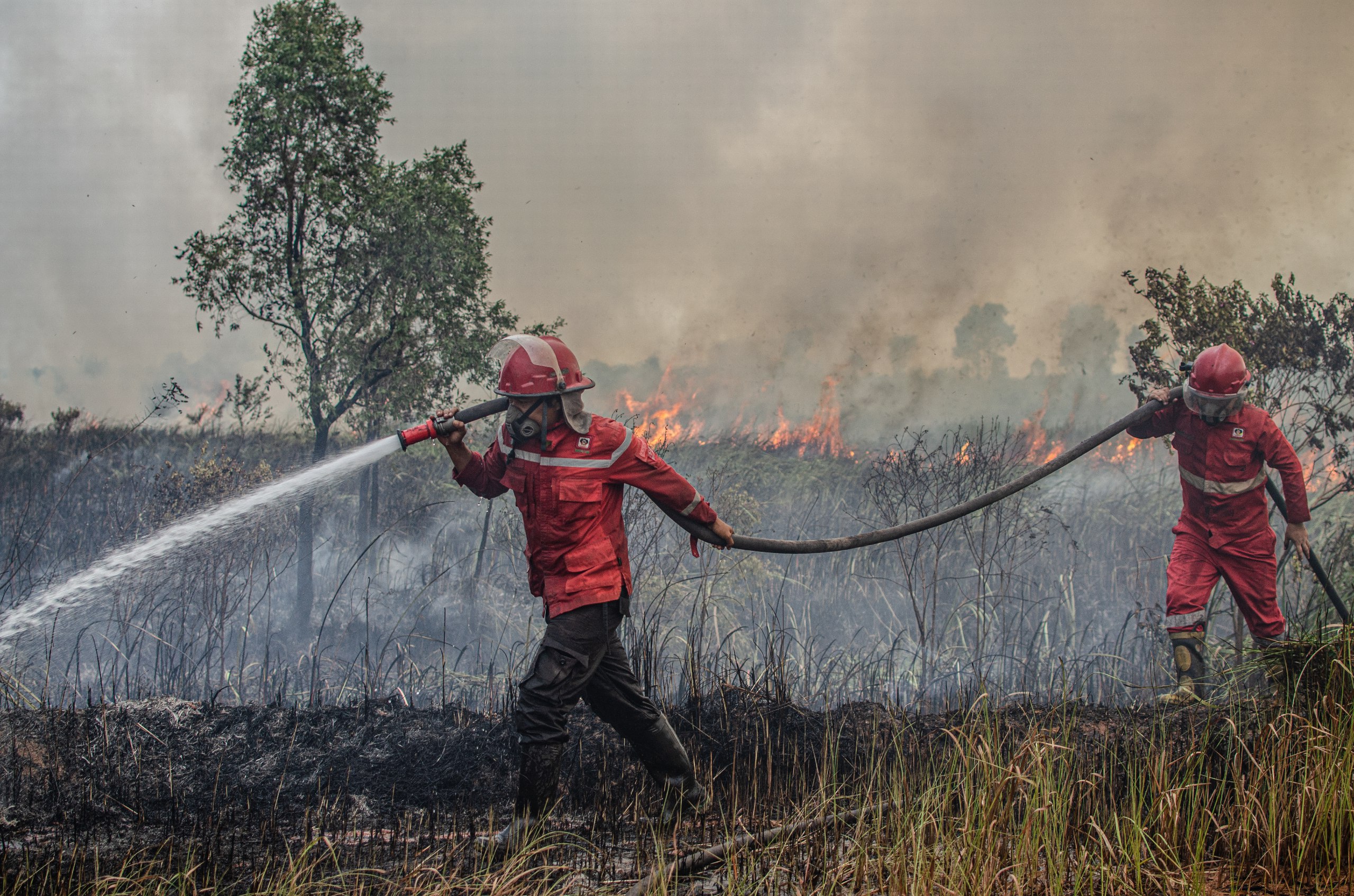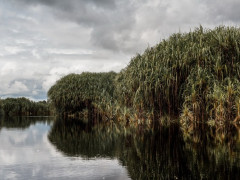Refocusing on Peat Restoration Amidst Regional Election
By Pantau GambutSurge in September Hotspots Reaches New Heights in 2023

Throughout September, Pantau Gambut discovered 47,760 hotspots scattered across the entire Peat Hydrological Unit (PHU) area in Indonesia. This figure marks the highest number of hotspots recorded in 2023, more than tripling the number of hotspots found compared to August. The spike in hotspot figures has not seen a reduction. The province with the most hotspots is Central Kalimantan (21,559), followed by South Sumatra (12,046), West Kalimantan (6,308), South Kalimantan (2,885), and South Papua (2,331).
Using the approach of peat ecosystem functions, the majority of hotspots were found in the protective function of the peat ecosystem, totaling 24,650 hotspots (52% of the total hotspot findings in the peat ecosystem). The abundance of hotspots detected in protective function areas should serve as a wake-up call for the government's commitment to peatland protection efforts. Considering Republic of Indonesia Government Regulation No. 57 of 2016 concerning Amendments to Government Regulation No. 71 of 2014 regarding the Protection and Management of Peat Ecosystems, the protective function should maintain high water levels, thus preventing fires.
PT Sangkowong Sinta, identified as the company with the widest vulnerability to forest and land fires (karhutla) in the Peat Hydrological Unit (KHG), also holds the record for the highest number of hotspots in September (845 hotspots). This finding aligns with the projection of the karhutla vulnerability condition in the study titled "Peat Ecosystem Karhutla Vulnerability" published by Pantau Gambut.
The high incidence of fires in Kalimantan Island has led to haze reaching Malaysia. However, the ASEAN Agreement on Transboundary Haze Pollution in 2002 agreed upon commitments to reduce the number of karhutla incidents. Abil Salsabila, Campaigner for Pantau Gambut, mentioned, "This raises questions about the government's climate commitments, as it is crucial to address the responsibility of corporations and their supply chains. This pertains to the supply chain of monoculture plantations in Indonesia that flow into corporations in Malaysia, Singapore, and even Europe."
Abil further added, "The government must not turn a blind eye to this situation. There are many tasks to be undertaken, such as declaring a national emergency status, conducting inspections and law enforcement on problematic companies, committing to restoration efforts, and rectifying policies that threaten the peat ecosystem." Bayu Herinata, Director of WALHI Central Kalimantan, also remarked, "Currently, there are four districts (Palangka Raya City, Kapuas Regency, Pulang Pisau Regency, and Kotawaringin Regency) that have declared a fire emergency response status. Unfortunately, the provincial-level emergency response status has not been raised." Despite this, some regions like Kotawaringin Timur have suspended educational activities from kindergarten to high school during the emergency response period.



